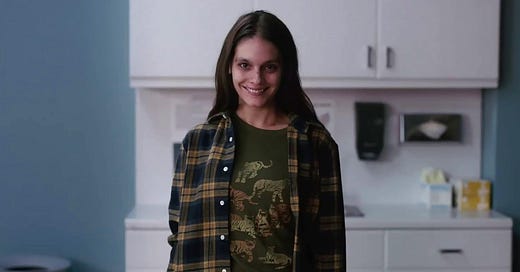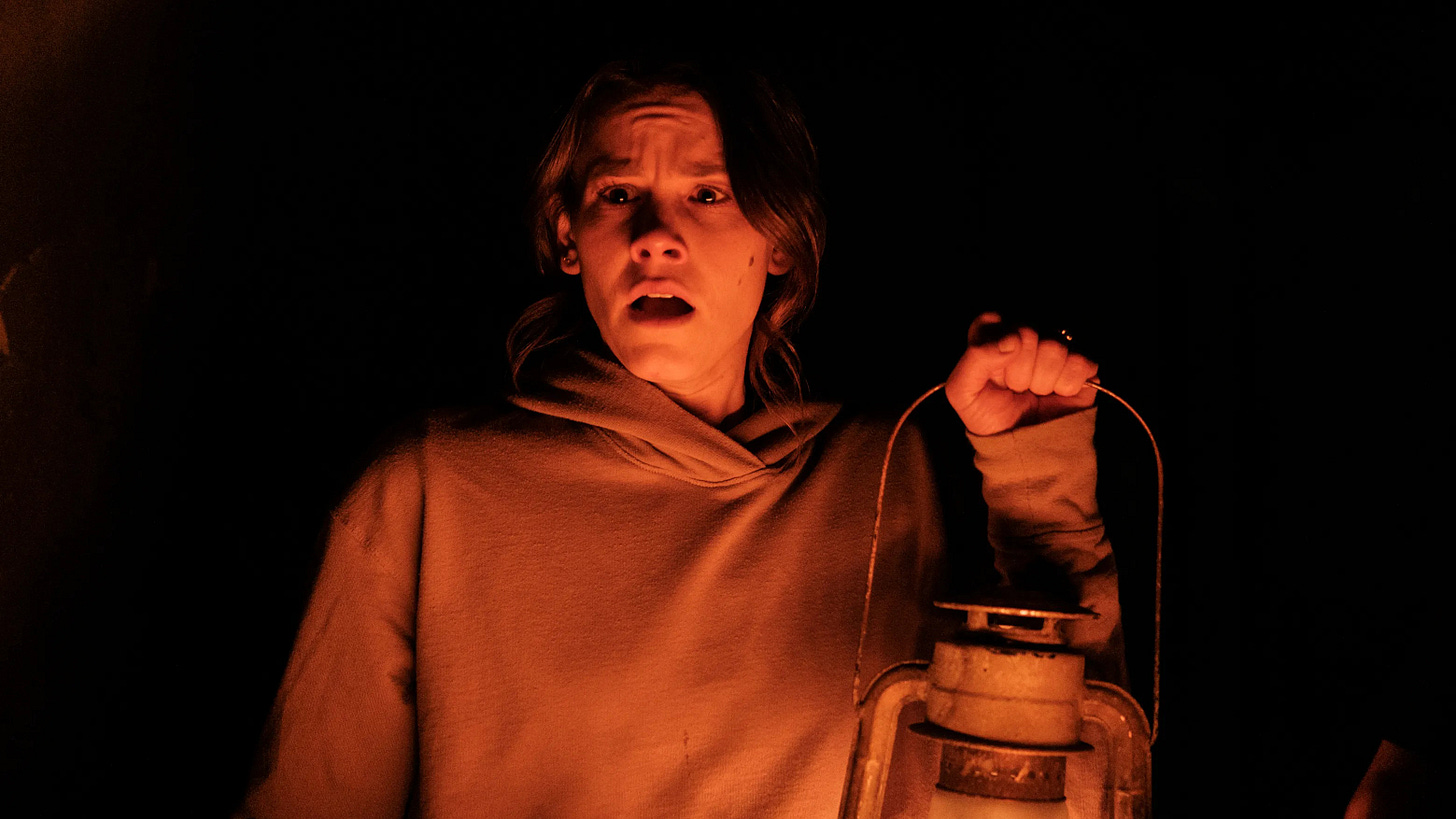Smile (2022)
7/10
A number of critics have compared Smile to 2014’s It Follows. Both films involve a demonic supernatural entity that can take on the appearance of anyone, manifesting itself as a curse passed from person to person. It Follows has better internal logic, but I still preferred Smile. Much of that has to do with the titular motif. Smiling is an expression typically associated with happiness and joy, but which can become unnerving in the context of horror. People who smile as they inflict brutal violence on themselves or others is a reliably disturbing horror trope, which in Smile becomes the signature warning sign of imminent death.
Smile follows therapist Rose Cotter (Sosie Bacon), who helps people deal with mental trauma but is herself left traumatized after a new patient, PhD student Laura Weaver (Caitlin Stasey), commits suicide in front of her. Rose starts to find herself experiencing the same frightening visions Laura experienced, as what appear to be hallucinations become more intense. Those around her believe she is losing her grip on reality and becoming a danger to herself and others.
Writer-director Parker Finn, in his feature debut, does an expert job of maintaining and building tension. Throughout the movie, I was constantly waiting for anyone Rose was talking to to flash that nightmarish smile. It happens less than you would think, but the longer anticipation extends that feeling of dread. Where It Follows used its supernatural entity as a parable for sexually transmitted infections, Smile describes the Smile Entity as feeding on trauma. Those who bear the curse need a witness when they commit suicide to pass the curse onto someone else.
Bacon gives a strong lead performance as a woman adept at helping others navigate mental health crises, who then seemingly undergoes one herself. Rose is driven by past trauma. As a child, she watched her mentally ill mother die from an overdose. With Rose insisting that what appear to be hallucinations are real, her fiancé Trevor (Jessie T. Usher), therapist Dr. Madeline Northcott (Robin Weigert), boss Dr. Morgan Desai (Kal Penn), sister Holly (Gillian Zinser), and cop ex-boyfriend Joel (Kyle Gallner) grow increasingly alarmed by her deteriorating mental state. Rose comes to distrust anyone as the Smile Entity takes the shape of those closest to her. One scene of the entity accosting Rose as she backs against a wall recalls an iconic shot from Alien 3 between the xenomorph and Sigourney Weaver’s Ripley.
The main flaw of Smile is that it’s not always clear what the rules are, to the point where any new plot development feels arbitrary because Finn can always reveal that what we’re seeing is all in Rose’s mind. We’re initially told the entity “wears” people like a mask. Yet throughout the film, Rose will see some creepy smiling figure that certainly isn’t an actual person, e.g. when alone in her house. That makes the climax hold less weight than it should, as what appears to be a major moment turns out to be all in Rose’s head. When the Smile Entity reveals its true appearance, though—“The Monstrosity”—it is genuinely grotesque.
During the climax there’s a revealing exchange. “This isn’t real! You’re not real!” Rose cries. The Monstrosity replies, “Your mind makes it real.” That latter line of dialogue, the same as one in The Matrix, perfectly encapsulates the philosophy of subjective idealism. Alan Woods defines subjective idealism as follows: “Things can only exist insofar as they are perceived. Therefore, it is impossible to say with any certainty that the world exists outside my sense perception.”
Refuting subjective idealism is outside the scope of this review, but suffice it to say it’s a childish philosophy that opens the door to all kinds of idealism, mysticism, and superstition. That’s not necessarily a problem when it comes to genres like horror and fantasy, allowing for fun movies like Smile and The Matrix. As a serious worldview, however, it’s nonsense. The world objectively exists outside our perception. There are two groups of people who believe the world ceases to exist when we close our eyes: infants and subjective idealists. Draw your own conclusions.
Philosophy and some climactic goofiness aside—there are moments in the finale that feel more ridiculous than scary—Smile is an enjoyable horror movie that takes the concept of It Follows and turns it into something more commercial. Tellingly, It Follows has yet to see a sequel while Smile 3 is already in the works.






